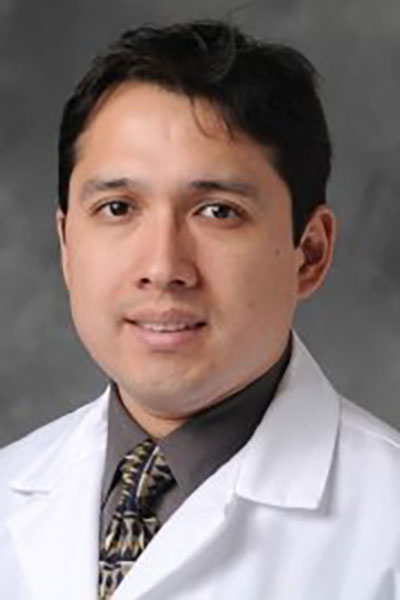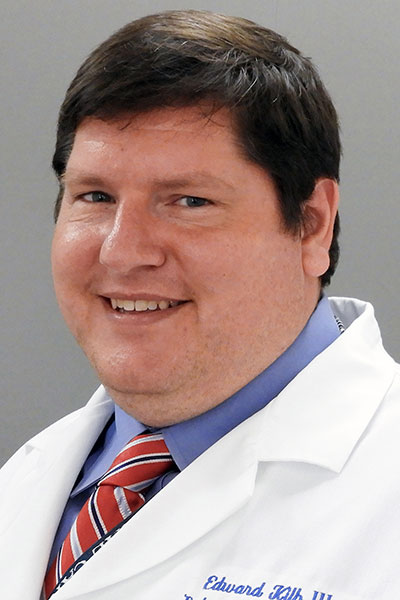The second and final Critical Care Core Curriculum session at the ATS 2025 International Conference will begin at 11:30 a.m. PT on Monday, May 19, in the Moscone Center, Esplanade Ballroom. This year’s curriculum is focused on optimizing care transitions in or out of the intensive care unit (ICU).

“With each scenario presented throughout this year’s core curriculum, one of the main questions is always when to consider enacting a transfer,” said Javier Diaz-Mendoza, MD, associate professor of medicine at Henry Ford Hospital-Wayne State University and co-chair of the Critical Care Core Curriculum series. “We want to spotlight guidelines and criteria to apply for different contexts and help our audience consider all of the factors that can impact the patient and care teams when a transfer occurs.”
Monday’s session will kick off with expert-led advice on when to seek a higher level of care for a patient. Edward Kilb, MD, associate professor of medicine at the Medical University of South Carolina and co-chair of the Critical Care Core Curriculum series, explained that this topic will bridge academic lessons with the more interprofessional nature of providing patient care, acknowledging that this often requires a unified effort from multiple teams (and sometimes care centers) to treat certain challenging diseases.
“When deciding to move a patient from their local center to a higher level of care, we sometimes neglect to consider the impacts on the patient and their family, which we want to emphasize,” Dr. Kilb said. “We’ll also look at some conditions and syndromes which patients tend to recover from better at higher and more centralized centers of care for specific disease processes.”
The conversation will then shift to considerations for transferring a patient to long-term acute care (LTAC) facilities. A provider from an LTAC facility will provide perspective on the importance of timing and what can be done to optimize the process when a patient is transferred under their care. This will also allow care teams to engage in more informed, robust conversations with patients and their family members about transfers to LTAC settings.
“This type of transfer often necessitates patients and their families to leave their safety nets, and we want to be able to discuss this with them in depth and ensure this is the right next step,” Dr. Kilb said.

The Critical Care Core Curriculum series will conclude with a discussion spotlighting the impact of transfers on patients’ families and loved ones.
“This is a big topic. When patients are transferred, for example, from the floor to the ICU, this causes emotional stress for the family members,” Dr. Diaz-Mendoza said. “There are ways we can improve communication with them and describe these interventions in a considered way to try to mitigate the family’s anxiety when their loved one is being moved to a different care setting.”
In addition to factors like travel and financial stress, the presentation will share several well-being metrics that can be utilized to approximate the level of impact patient transfers can have on patients and their families, so providers are aware of the potential risks as well as the benefits when considering this step.
The goal of the core curriculum is to support clinicians engaged in maintenance of certification (MOC) activities by providing updates on subjects included in recertification requirements. The ATS Clinical Core Curriculum Symposia focuses on key topics in adult and pediatric pulmonary, critical care, and sleep medicine. The topics are aligned with corresponding MOC Medical Knowledge modules. This symposium is intended to help clinicians stay up to date with important information relevant to their medical practices and to provide an opportunity for clinicians to evaluate their knowledge and skills while earning MOC Medical Knowledge points.
Don’t Miss the ATS 2026 International Conference

Register today for the ATS 2026 International Conference to experience this year’s premier respiratory health conference, May 15-20 in Orlando. Join your colleagues to learn about the latest developments in pulmonary, critical care, and sleep medicine.
Not and ATS member? Join today and save on your conference registration!

